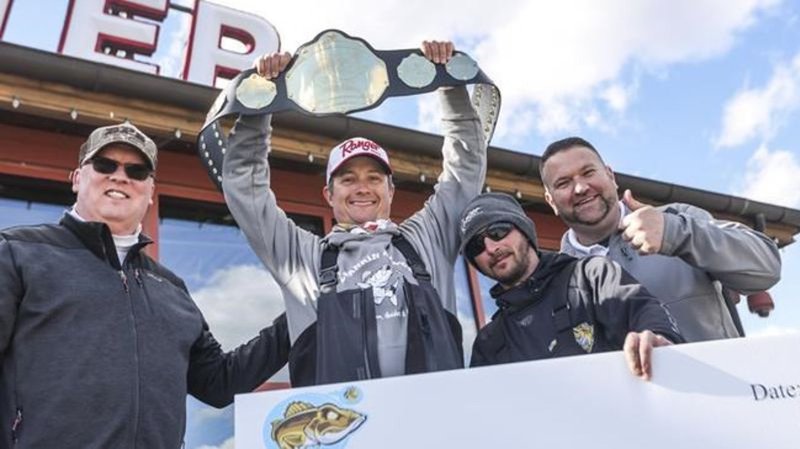
Ohio walleye scandal deals big blow to tournament fishing
They fish tournaments for a living so Canadians Jeff Gustafson and Chris Johnston aren’t surprised by the public backlash created by the disqualification of two anglers from an Ohio walleye event after lead weight and fillets were discovered in their catch.
On Friday, Jacob Runyan and Chase Cominsky were disqualified from a Lake Erie Walleye Trail tournament when egg-shaped lead sinkers and fish fillets were found in the fish they’d brought to the final weigh-in Friday.
Had Runyon and Cominsky won the tournament — they were considered the team to beat — they would’ve received almost US$30,000 in prizes. They’d also won several other competitions in recent years, the disqualification now bringing those previous victories into serious question.
Video of the discovery — along with a group of competitors heckling and verbally lambasting a stoic Runyon — quickly went viral on social media over the weekend. The incident made headlines across North America — including in the New York Times and Washington Post — and prompted many to not only question the legitimacy of fishing tournaments in general but speculate about the amount of cheating that goes on in events.


